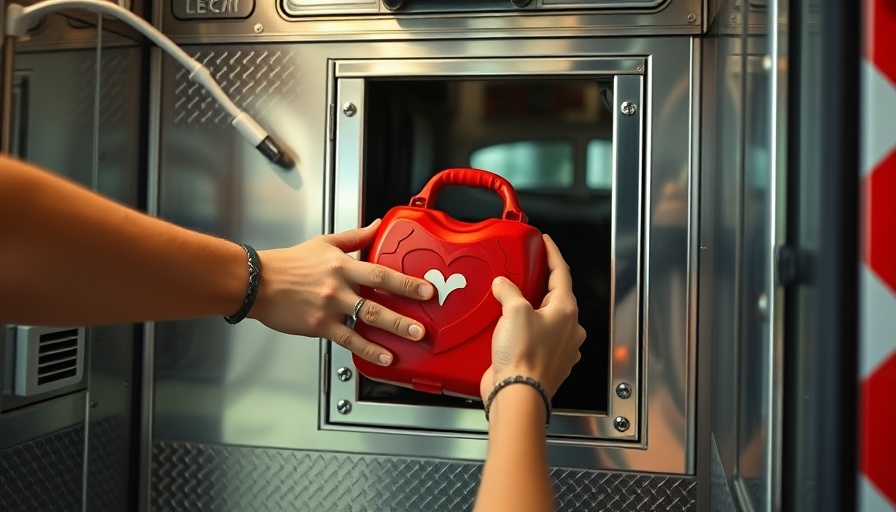
Understanding the Life-Saving Role of Defibrillators
Defibrillators are essential tools in modern medicine, crucial for treating cardiac emergencies. When a patient experiences cardiac arrest, immediate use of a defibrillator can mean the difference between life and death. This article explores various types of defibrillators, their functions, and why understanding them is important for everyone, especially those with risk factors associated with heart conditions.
What is a Defibrillator?
At its core, a defibrillator is a medical device designed to send an electric shock to the heart, with the goal of restoring a normal rhythm during life-threatening situations, such as ventricular tachycardia or ventricular fibrillation. It is often equipped with ECG leads and adhesive patches that attach to the patient’s chest, facilitating the delivery of the electric shock. Understanding how these devices work can empower individuals to act confidently in emergencies.
The Different Types of Defibrillators
Defibrillators come in various forms, each suited for different circumstances. They include:
- Automated External Defibrillators (AEDs): These portable devices analyze the heart's rhythm and automatically determine if a shock is needed. Because of their user-friendly design, AEDs are now found in many public spaces, making them accessible in emergencies.
- Implantable Cardioverter-Defibrillators (ICDs): Sized like a small pager, ICDs are surgically placed in patients who are at high risk for sudden cardiac arrest. They continuously monitor heart rhythms and deliver shocks as necessary, acting as a safeguard against arrhythmias.
- Wearable Cardiac Defibrillators (WCDs): These contraptions provide external shocks when abnormal rhythms are detected. They serve as a temporary solution for high-risk patients awaiting permanent devices like ICDs.
The Importance of Knowing About AEDs
AEDs are designed for emergency use and require no prior medical training, making them invaluable in unexpected situations. Their presence in public locations enhances community safety and encourages rapid response during cardiac emergencies, significantly increasing survival rates.
It’s crucial for the general population to understand how AEDs work to eliminate hesitation in cases of cardiac arrest. Voice prompts and visual aids on AEDs guide users during the process, ensuring that even those with little or no medical knowledge can provide assistance.
The Significance of Implantable Devices
ICDs represent a significant advancement in cardiac care. For those living with heart conditions, having an ICD can dramatically affect their quality of life, providing reassurance and security that help is available at a moment's notice.
Patients who receive ICDs often have a higher life expectancy as these devices actively monitor heart patterns and can intervene before a situation worsens. When patients are educated about their devices, they tend to feel empowered and more active in managing their health.
Impacts of Heart Health on Lifestyle Choices
Individuals grappling with high blood sugar, high cholesterol, diabetes, or similar health conditions should be particularly attentive to their heart health. Making lifestyle adjustments, such as adopting an intermittent fasting routine or exploring the keto diet, may improve heart health outcomes and potentially reduce the need for such interventions.
Future Directions in Cardiac Care
The future of cardiac care is leaning toward technology that not only assists patients during emergencies but also offers preventive measures. Emerging research indicates wearable technology may provide continuous heart monitoring, flagging any irregularities proactively.
Conclusion: Taking Action to Improve Heart Health
In conclusion, understanding the types of defibrillators available can empower individuals to take action in emergencies and to make informed choices about their heart health. Beyond knowing how to use an AED or consider an ICD, being proactive about lifestyle choices can lead to long-term health benefits. For instance, adopting an intermittent fasting routine could positively influence weight management, improve blood sugar levels, and contribute to overall cardiovascular health. Taking charge of your health and understanding these medical devices is vital as they may one day play a role in your or a loved one's life. Explore the possibilities of healthier living, and remember, awareness is the first step towards prevention!
 Add Row
Add Row  Add
Add 



Write A Comment